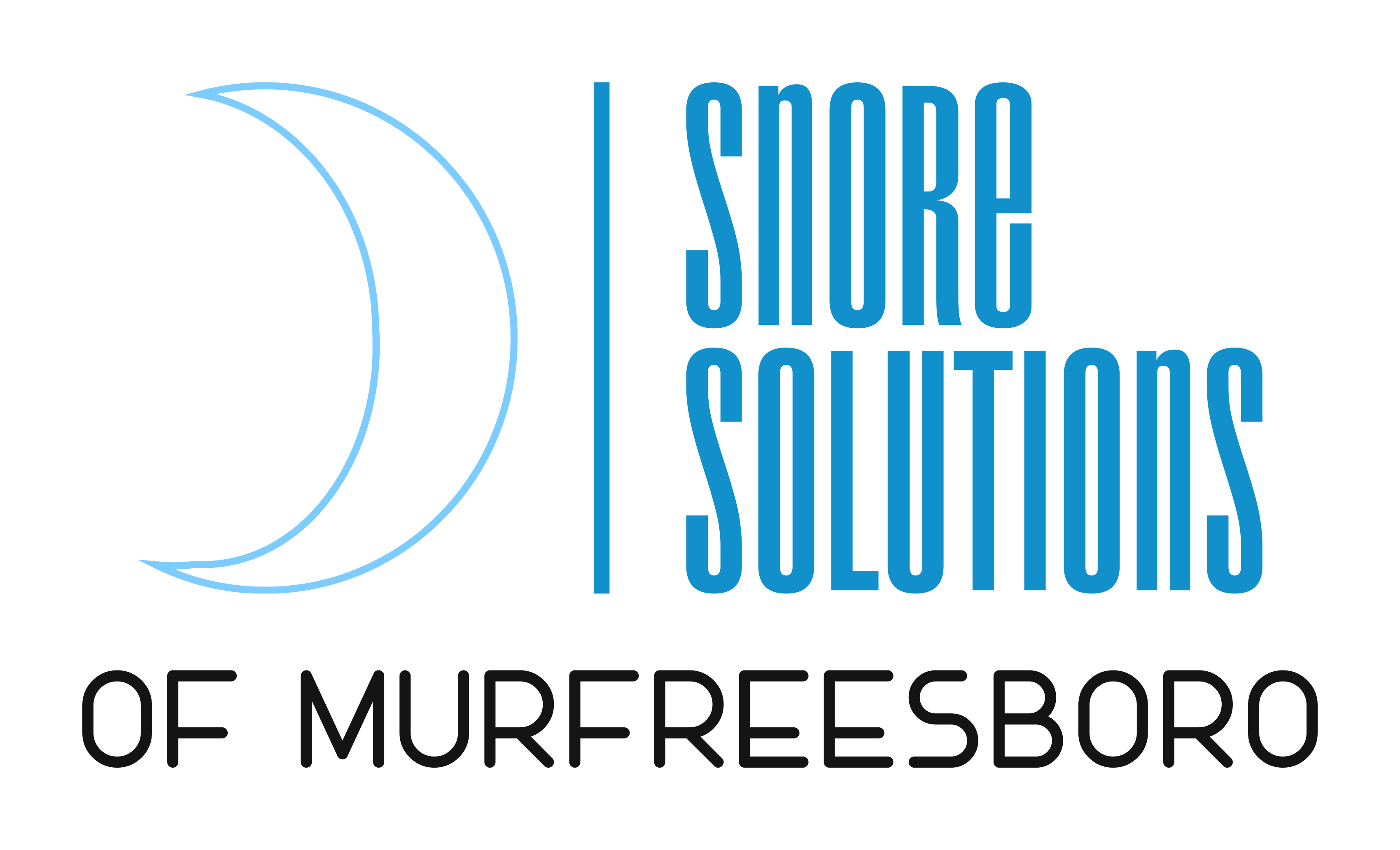Snoring and sleep apnea are prevalent sleep disorders that frequently remain undiagnosed and untreated. This examination delves into the realities of these conditions and dispels various misconceptions linked to them.
From the fallacy that only overweight individuals snore to the notion that snoring is innocuous, these myths are addressed, offering valuable insights on how to manage and address snoring and sleep apnea.
Furthermore, exploration of treatment options and prevention strategies is provided for a comprehensive understanding of the subject matter.
Understanding Snoring and Sleep Apnea
Snoring and sleep apnea stand as prevalent sleep disorders impacting a significant number of individuals globally, frequently leading to disturbances in breathing and diminished sleep quality. Snoring manifests as audibly disrupted breathing during sleep prompted by airway blockages, whereas sleep apnea entails recurrent interruptions in breathing, posing potentially severe health risks.
What is Snoring?
Snoring is a prevalent condition characterized by partial obstruction of the airflow through the mouth and nose, resulting in a vibrating noise during sleep. This obstruction may stem from various factors, such as the relaxation of throat muscles that leads to the narrowing of the airway.
The sleeping position significantly influences snoring, as sleeping on one’s back can cause the tongue to fall backward and further obstruct the airway. Nasal congestion is another contributing factor to snoring, as it restricts airflow through the nose, thereby necessitating increased breathing through the mouth. Additionally, anatomical features of the throat, such as a low-hanging soft palate or enlarged tonsils, can heighten the likelihood of snoring.
What is Sleep Apnea?
Sleep apnea is a significant sleep disorder characterized by recurrent interruptions in breathing during sleep, posing potential risks to overall health if not addressed promptly.
There exist various types of sleep apnea that can impact individuals, including obstructive sleep apnea, central sleep apnea, and complex sleep apnea. Obstructive sleep apnea stands as the most prevalent form, distinguished by the relaxation of throat muscles during sleep resulting in airway blockages. Central sleep apnea manifests when the brain neglects to transmit proper signals to the breathing-controlling muscles. Complex sleep apnea, on the other hand, presents as a combination of obstructive and central sleep apnea.
Common symptoms associated with sleep apnea encompass excessive daytime drowsiness, loud snoring, and morning headaches. Diagnostic procedures vary, ranging from overnight polysomnography tests conducted at sleep centers to home sleep tests for enhanced convenience in monitoring. Treatment modalities frequently involve the use of CPAP machines to maintain open airways during sleep, alongside lifestyle adjustments like weight management and positional therapy.
Common Myths About Snoring and Sleep Apnea
Numerous prevalent misconceptions exist regarding snoring and sleep apnea, which can result in misinterpretations about these conditions and their implications for health. Dispelling these fallacies is essential for enhancing awareness and promoting the pursuit of suitable treatment options.
Myth #1: Only Overweight People Snore
One common misconception is the belief that only individuals who are overweight snore; however, snoring can affect individuals of all body types and weights.
Snoring can be attributed to various factors beyond weight, such as nasal congestion, throat anatomy, and sleeping position. Nasal congestion can cause airflow restrictions, leading to throat vibrations and subsequently resulting in snoring. Certain throat structures or individuals who sleep on their back may also be more susceptible to snoring. While obesity can increase the likelihood of snoring due to additional tissue in the throat, it is important to recognize that weight is not the exclusive determinant of experiencing this prevalent sleep issue.
Myth #2: Snoring is Harmless
Contrary to prevailing misconceptions, snoring is not always benign and can serve as an indicator of underlying health concerns that demand attention. Some individuals may trivialize snoring as a ubiquitous nuisance; however, it can signify significant conditions such as sleep apnea, a disorder characterized by intermittent cessation and resumption of breathing during sleep. Sleep apnea is associated with a myriad of health complications, including an elevated susceptibility to cardiovascular ailments like hypertension and heart disease.
Persistent snoring has the potential to engender fragmented and substandard sleep, leading to diurnal fatigue, irritability, and cognitive difficulties. Acknowledging the possible health ramifications of snoring is imperative, and individuals afflicted with frequent or severe snoring should contemplate seeking medical counsel to undergo a comprehensive assessment and implement suitable treatment strategies.
Myth #3: Only Men Snore
The misconception that only men snore is inaccurate; snoring can affect individuals of both genders, although it is more commonly reported in men.
Snoring is a prevalent issue that can impact individuals regardless of gender. While men have a higher prevalence of snoring, women are not immune to this nocturnal disturbance. Hormonal fluctuations, anatomical variances in the throat, and lifestyle choices can all contribute to snoring in women.
It is imperative to acknowledge snoring in women as it may indicate underlying health concerns that warrant attention. By recognizing and addressing snoring in women, we can ensure they receive the necessary care and assistance for a peaceful night’s rest.
Myth #4: Snoring is Just a Nuisance
Many individuals consider snoring to be a mere annoyance, however, its effects extend beyond being a nuisance, impacting the quality of sleep and interpersonal relationships.
Snoring disrupts not only the snorer’s sleep but also that of their bed partner. The consistent noise and interruptions stemming from snoring can lead to fragmented sleep, resulting in daytime fatigue and irritability for both parties. This pattern of disrupted sleep can elevate stress levels, reduce productivity, and place strain on the overall well-being of the relationship.
Addressing snoring problems is crucial not just for enhancing sleep quality but also for cultivating a stronger and more harmonious bond between partners.
Debunking the Myths
Dispelling the misconceptions pertaining to snoring and sleep apnea is imperative to disseminate precise information and prompt individuals to pursue suitable treatment and remedies.
Truths About Snoring and Sleep Apnea
The reality concerning snoring and sleep apnea is that they are intricate conditions with diverse causes, symptoms, and health ramifications that necessitate accurate diagnosis and intervention.
Snoring, commonly associated with sleep apnea, arises when the airflow through the mouth and nose is obstructed to some extent during sleep, causing vibrations in the soft tissues of the throat. Conversely, sleep apnea represents a severe sleep disorder typified by interruptions in breathing or shallow respiration while asleep. Indications of these conditions encompass frequent or loud snoring, daytime exhaustion, morning headaches, and difficulties in concentration.
If left unaddressed, sleep apnea can result in significant health hazards like hypertension, cardiovascular ailments, and stroke. Seeking medical consultation and adhering to prescribed treatments, such as Continuous Positive Airway Pressure (CPAP) therapy, oral appliances, lifestyle adjustments, or surgical interventions, are imperative measures in effectively managing these disorders.
How to Address Snoring and Sleep Apnea
The management of snoring and sleep apnea necessitates a multifaceted approach encompassing lifestyle modifications, medical interventions, and preemptive measures aimed at enhancing respiration and overall quality of sleep. It is imperative to seek guidance from healthcare practitioners, including sleep specialists and pulmonologists, in order to obtain an accurate diagnosis and tailored treatment regimen.
Treatment Options and Prevention Strategies
Treatment options for snoring and sleep apnea encompass a spectrum ranging from lifestyle modifications and home remedies to medical interventions, such as CPAP machines and oral appliances.
Lifestyle adjustments play a pivotal role in the management of snoring and sleep apnea. Implementing changes such as weight loss attainment, adopting specific sleep positions conducive to enhanced airflow, and engaging in targeted throat exercises can effectively alleviate symptoms.
Medical devices like CPAP machines are frequently prescribed for individuals suffering from moderate to severe sleep apnea. These devices deliver continuous air pressure to maintain the airway unobstructed during sleep. Conversely, oral appliances, custom-fitted by dental professionals, can be worn during sleep to reposition the jaw and tongue, aiding in improved breathing.
It is imperative to undergo a sleep study and consult with a sleep specialist to obtain an accurate diagnosis and tailored treatment regimen.
Frequently Asked Questions
Is snoring a harmless habit?
No, snoring can be a sign of a more serious condition called sleep apnea, which can have harmful effects on your overall health if left untreated.
Is sleep apnea only a problem for older individuals?
No, sleep apnea can affect people of all ages, including children. It is important to recognize the symptoms and seek treatment regardless of age.
Is snoring just a result of being overweight?
While being overweight can contribute to snoring, it is not the only factor. Even thin individuals can experience snoring and sleep apnea due to other factors such as narrow airways or genetics.
Can alcohol help with snoring?
No, alcohol actually relaxes the muscles in the throat, making snoring and sleep apnea worse. It is best to avoid alcohol before bedtime if you have problems with snoring and sleep apnea.
Can sleeping on your back prevent snoring?
Not necessarily. Sleeping on your back can increase the likelihood of snoring and sleep apnea. It is recommended to sleep on your side to reduce snoring and improve breathing.
Is surgery the only solution for snoring and sleep apnea?
No, surgery is often seen as a last resort for treating snoring and sleep apnea. There are non-invasive and highly effective treatments such as CPAP therapy and oral appliances that can successfully manage these conditions.

